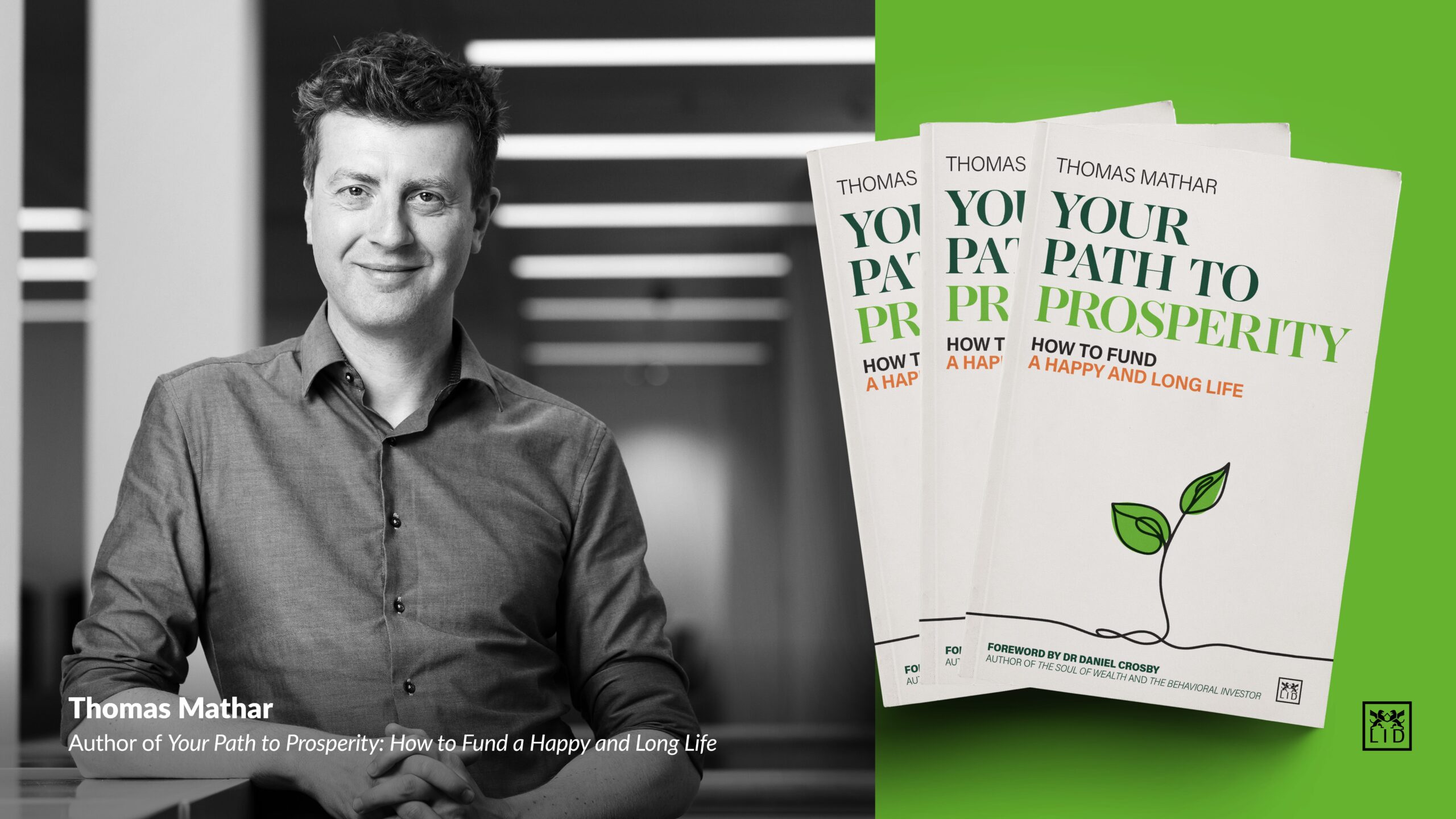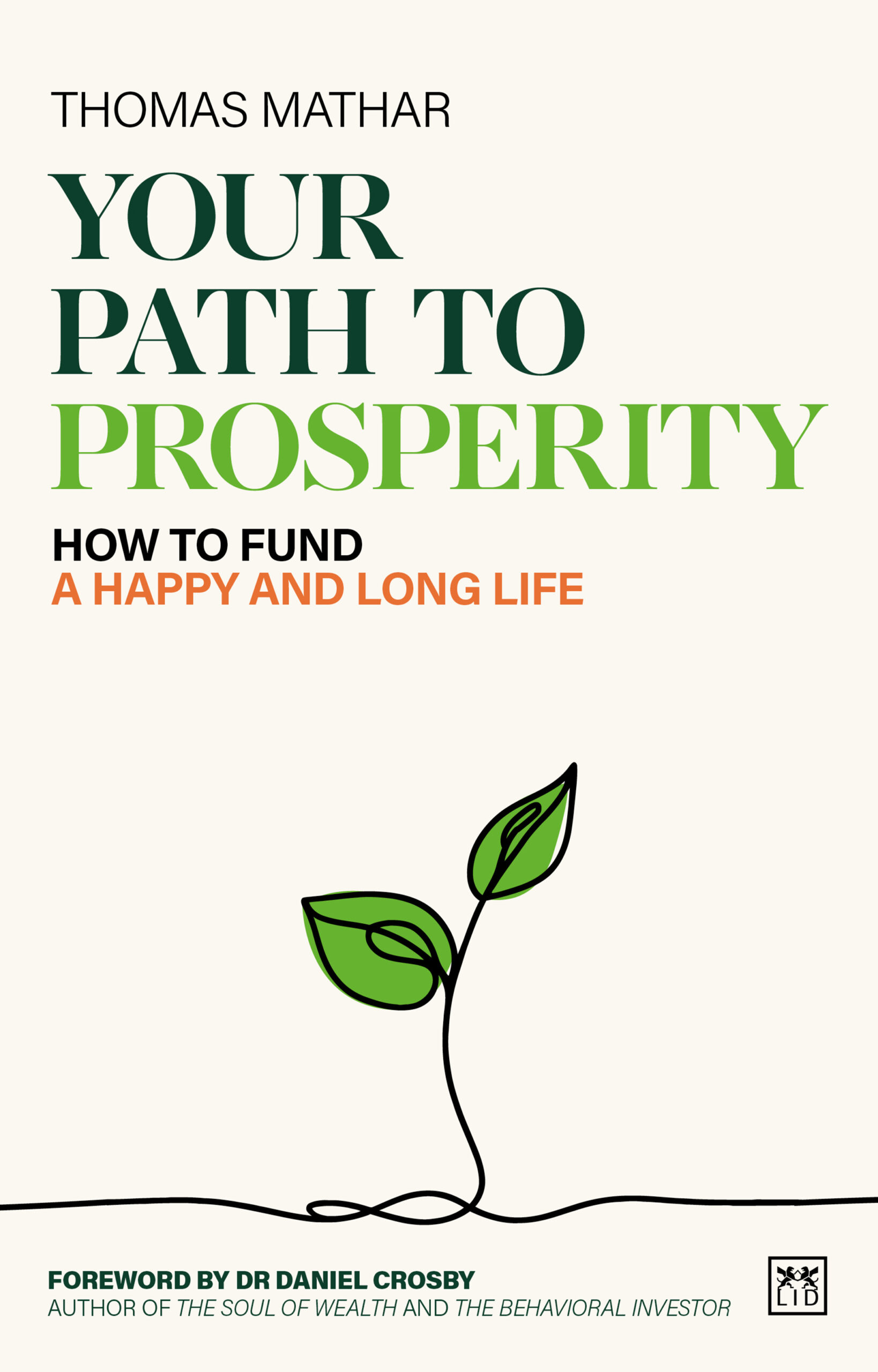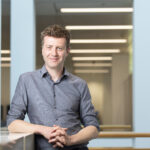|
Self-Knowledge Is an Asset Class with Dr Thomas Mathar
Self-Knowledge Is an Asset Class

By guest contributor Dr Thomas Mathar
We’ve been gifted a miracle – we just haven’t quite worked out how to unwrap it.
We’re living longer, healthier lives. Thanks to medical advances, improved living standards, and fewer people smoking through pregnancy (thanks, mum), we can expect to live into our 90s or even past 100. That’s not science fiction. That’s your likely future.
This extra time is a gift. It offers second (and third and fourth) chances – to change careers, fall in love again, move cities, retire early, un-retire later, start that novel or salsa class. It’s a vast new frontier of possibility. But – as with all gifts – it comes with strings attached.
Because you can’t live 100 years on vibes alone. You’ve got to fund it.
We know this part by now. The longer we live, the more we need to save. Pension pots need to stretch further. Emergency funds need to be fatter. Transition funds? Essential. The economic maths is simple: more years = more money. And so we think a lot about our financial assets. Our investments, pensions, property, and income. The entire industry is geared toward helping us think about the price tag of longevity.
But here’s what we don’t talk about enough: the non-financial assets that a long life depends on just as much.
Anthropologists like Pierre Bourdieu have long argued that there are other forms of capital beyond cash. For example, there is
- Social capital – the relationships and networks that support us.
- Cultural capital – the knowledge, credentials, and tastes that help us navigate society.
- Body capital – our physical health and even how we present ourselves.
These matter deeply.
In my book Your Path to Prosperity – How to fund a long and happy life, I make the case for another vital form of capital – one we rarely count on our balance sheet:
Self-knowledge
Yes, self-knowledge. Understanding how you tick. Because if you’re going to live a long, complex, multistage life – full of transitions, pivots and big decisions – then knowing yourself is just as important as working on your net worth.
What do I mean by self-knowledge? A few specific things:
- Your money mindset
This is about the beliefs, attitudes, and emotional reactions you hold about money. Were you raised to think that money is dirty? That it doesn’t grow on trees? That it’s your job to provide? That you’re not the kind of person who “gets rich”? These inherited narratives shape how we earn, save, spend, and invest.
If we don’t understand our money mindset, we risk repeating patterns that don’t serve us – buying to impress, saving out of fear, or avoiding financial planning altogether. As I describe in my book, until we examine these emotional reactions, even the best financial strategies won’t stick. Strategy without mindset is like a house built on sand.
- What makes you happy
Seems obvious, right? But most of us don’t really know. We assume it’s the promotion, the new electric car, the big house with three bathrooms and one toilet no one’s allowed to use. But when we chase the wrong things – things that look good on Instagram but feel hollow in real life – we spend our lives accumulating, not thriving.
Self-knowledge means interrogating what really brings you joy, peace, fulfilment. Spoiler: it’s often the less flashy stuff – time with loved ones, meaningful work, feeling useful, freedom over your time. Knowing this lets you make better financial and life decisions. It helps you align spending with values – this is what I mean when I write of prosperity.
- A connection to your future self
You’ll be spending a lot of time with your future self – better get to know them.
Behavioural science shows we treat our future selves like strangers. We overvalue now-me and underfund future-me. That’s why we don’t save enough, why we keep unhealthy habits, and why our pension feels like a project for “later.”
But here’s the trick: if we cultivate empathy for our future selves – really picture their needs, values, and joys – we make better choices today. As I explain in the book, the more vivid that future self becomes, the more motivated we are to plan wisely.
- The mechanisms that distract and derail us
Here’s the uncomfortable truth: the world is not set up to help us thrive. Not financially, not emotionally.
Online retail is designed to hack your impulses. News cycles are built to agitate, not inform. Your smartphone is a dopamine slot machine. It’s no accident that saving feels boring and shopping feels fun – billions have been spent to make it that way.
Understanding these mechanisms – and your own responses to them – is crucial. Because otherwise, your best intentions will get hijacked. You’ll say you want to invest in your future… but then a push notification offers 20% off noise-cancelling headphones you didn’t need. Self-knowledge acts as a shield. It helps you notice, pause, and choose more deliberately.
In a 100-year life (an idea first floated by psychologist Lynda Gratton and economist Andrew Scott), the stakes are higher. We’re not navigating three neat stages of school, work, retirement. We’re facing multiple transitions – retraining at 50, caregiving at 60, working part-time at 75, launching a side hustle at 80.
And these transitions demand self-knowledge. Because every pivot comes with questions:
- Do I want this job or just its title?
- Is this relationship sustaining me or draining me?
- Should I move closer to my children or follow a new passion?
- What am I willing to give up for more time, more meaning, more peace?
You can’t Google those answers. You have to know yourself.
That’s why I argue that self-knowledge is an asset class – one that compounds over time. It doesn’t earn interest in a bank, but it pays dividends in clarity, confidence and congruence. It makes your financial plan more meaningful and your decisions more sustainable.
And yes, it’s central to financial wellbeing – the real goal in all of this. Not financial independence, not early retirement. But FLOW: Financial Lives Optimised for Wellbeing. A life where money aligns with meaning, where your resources support your real values.
Self-knowledge is what makes that possible. It helps you distinguish between what looks good and what is good. It helps you build a life – not just a portfolio.
In a world obsessed with net worth, I think we need to pay more attention to self worth – and the clarity that comes from understanding who you are, what you value and where you’re headed.
ABOUT THE AUTHOR
Suggested Reading
 Your Path to Prosperity unpacks why money choices are so overwhelming. And why we’re wired to struggle with them. What’s more, the book offers a way forward. It reminds us that money is essential. But the real asset is self-knowledge: understanding your money-mindset, what makes you happy, how you deal with uncertainty, and connect with our future selves.
Your Path to Prosperity unpacks why money choices are so overwhelming. And why we’re wired to struggle with them. What’s more, the book offers a way forward. It reminds us that money is essential. But the real asset is self-knowledge: understanding your money-mindset, what makes you happy, how you deal with uncertainty, and connect with our future selves.

 Dr Thomas Mathar (Dr Tom for short) is a researcher, author, podcaster and speaker who helps shift the way we think about money. He’s the Head of Money Mindshift at Aegon UK, a long-term savings provider, and works at the intersection of financial wellbeing, behavioural science and longevity education. He holds a PhD in social anthropology from Humboldt University in Berlin and lives in Edinburgh with his wife and children.
Dr Thomas Mathar (Dr Tom for short) is a researcher, author, podcaster and speaker who helps shift the way we think about money. He’s the Head of Money Mindshift at Aegon UK, a long-term savings provider, and works at the intersection of financial wellbeing, behavioural science and longevity education. He holds a PhD in social anthropology from Humboldt University in Berlin and lives in Edinburgh with his wife and children.